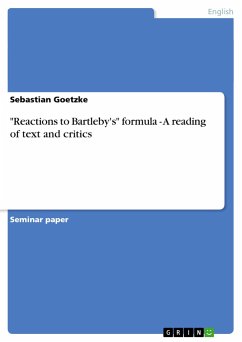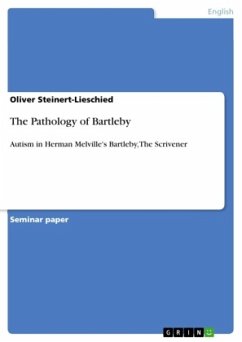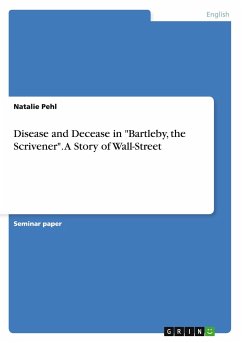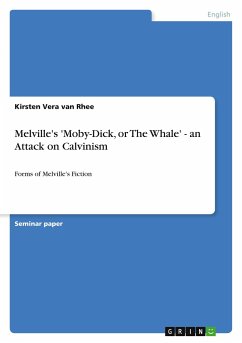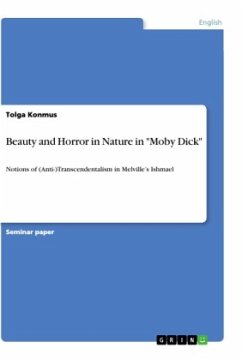Seminar paper from the year 2003 in the subject American Studies - Literature, grade: 2,0 (B), University of Dusseldorf "Heinrich Heine" (Anglistics Institute), course: Melville's Short Novels, language: English, abstract: Almost everyone has heard of the novel "Moby Dick". Less people though know that it was Herman Melville who wrote the world famous best-seller. Yet even less people can name other books and stories written by the American. One important story cycle he published in 1856 is called "The Piazza Tales" and it includes the short novels "Bartleby, The Scrivener", "Billy Budd" and "Benito Cerone".This paper deals with the first one.In the process of my work I will try to present a short overview about the story and give a brief summary. Nevertheless it is assumed that the reader of this paper is already familiar with the text.I will focus on the formula "I prefer not to" which Bartleby frequently uses as his only way to communicate with his environment. In a first stepI will examine the influence that the usage of this formula has on the lawyer. Furthermore I will present the reactions of the office clerks and of other people to this phrase.The second part of this paper then is devoted to the opinions and interpretations of famous Melville critics who put the weight of their argumentation on very contradictory points. This criticism is essential in order to understand the story. In traditional forms Bartleby is "unreadable". The text becomes meaningful, framed and structured only by taking account of the according criticism. Of course, there are many and very different ways to criticize the story. I though think that dealing with the famous phrase is the form of interpretation that is closest to the text and therefore the most easily to follow. With all these critical views and opinions, including my own argumentation, I will show that Bartleby never had a chance to survive. His chosen style of living just did not fit into the world back in these days. Does it today? I will come back to this thesis in the end and try to find an answer.
Bitte wählen Sie Ihr Anliegen aus.
Rechnungen
Retourenschein anfordern
Bestellstatus
Storno

